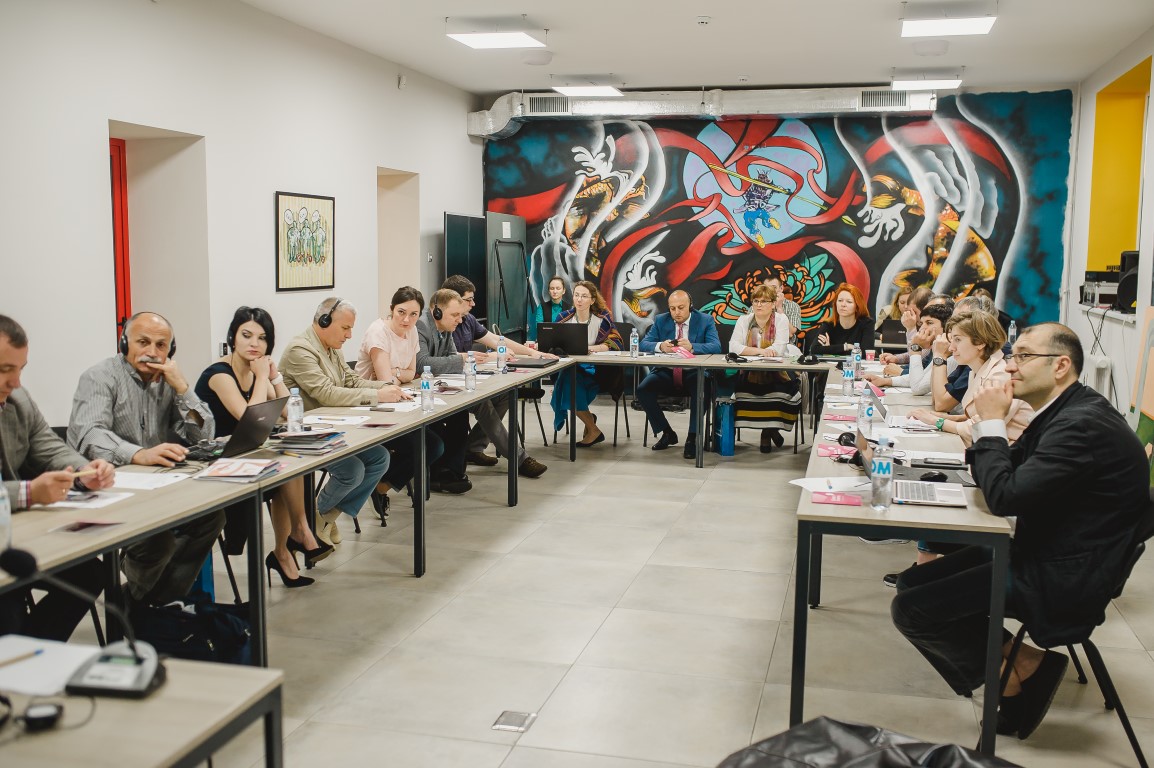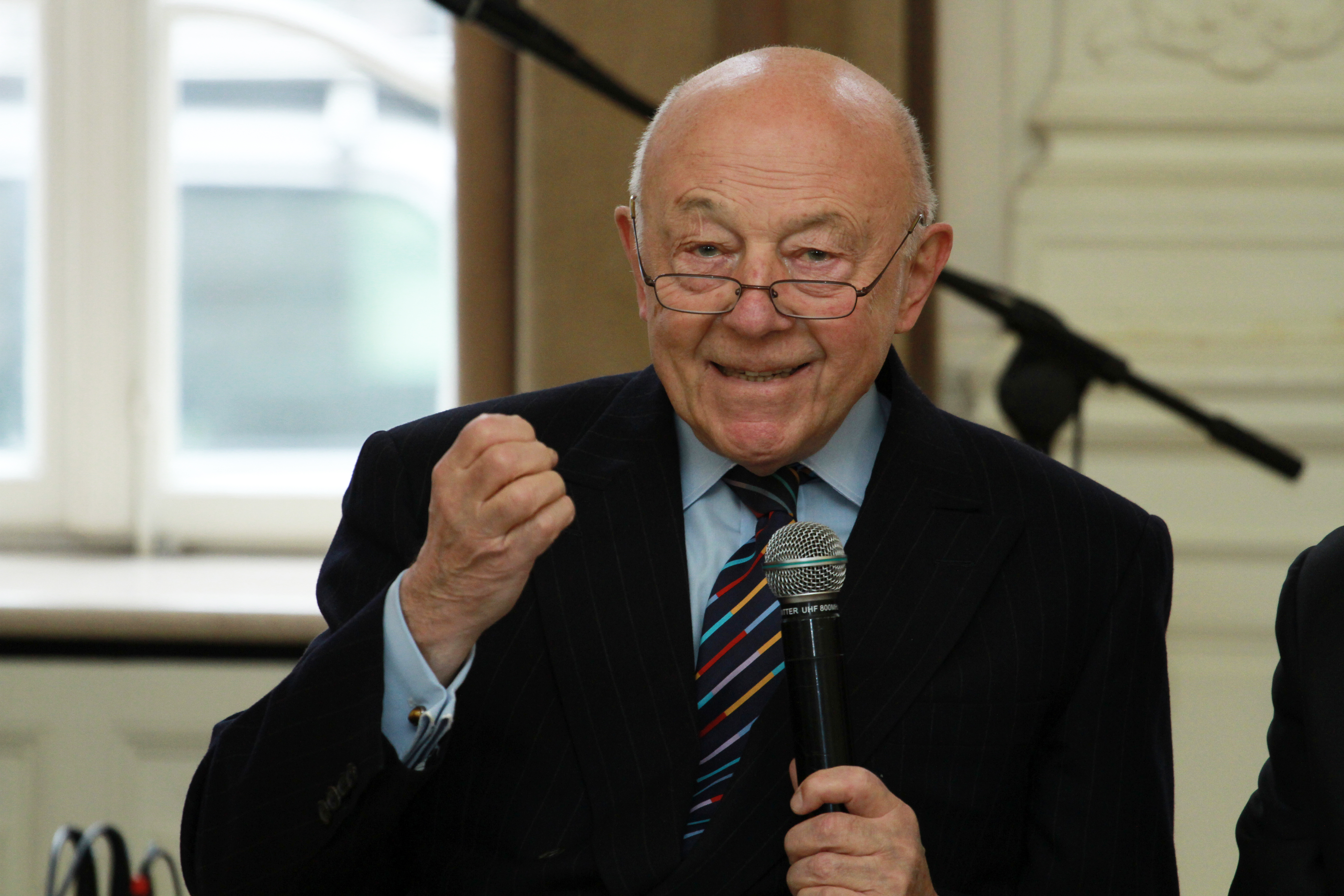
Zora Jaurova: “Culture is What Makes Us Human”
Zora Jaurova is a culture expert from Slovakia, president of the Slovakian Creative Industry Forum, specialist in cultural policies and international cultural cooperation. She is also a successful practitioner, working as a cultural manager and film producer, and has experience in organising large-scale projects.
Zora, could you tell us about your professional background?
I graduated from university with a degree in Theatre Directing, but I soon began devoting more time to cultural development strategies and European cooperation. Then I headed the National Agency for International Cultural Cooperation, where I worked even closer with cultural policies. Over the course of several years, I was vice president of Culture Action Europe, a global platform defending the interests of cultural organisations in Europe. Later, I was director of the Kosice European Capital of Culture 2013 initiative. Today, I produce films and work as an expert on cultural policies. In addition, I’m the president of the Slovakian Creative Industry Forum, a Slovakian national platform in the creative industries.
Why is the development of creative industries important? What can a successful, developed creative sector offer a country?
For a very long time, there has been a tendency to draw a clear line between culture and the economy. It was believed that culture consumes resources while the economy generates them. But if you look at the recent developments in the global economy, this is not the case. Please note the sectors of the economy that are witnessing the most active flow of financial resources today—these are the sectors related to creativity and innovation. They have nothing to do with natural resources or industries. Instead, they are deal with what happens in people’s minds: ideas and the creative ability to find new solutions. We live at a time when we are beginning to realise that culture, together with creativity, and the economy are two sides of the same reality. For example, Shakespeare was both an artist and an entrepreneur.
Nowadays, the very notion of a ‘creative person’ has become much broader…
Absolutely! But the digital economy forces us to think about the competitive advantages, namely, creativity. At this very moment, possibly thousands of people around the world are working on similar applications for the iPhone or computer. And the decisive factor for whether thousands of developers would succeed are the additional advantages offered by creativity, innovative design, unique solutions, etc.
That is, culture can provide additional advantages, including advantages for the business environment, correct?
Certainly. But I believe we shouldn’t limit ourselves to this. If you look at what’s happening today around the world, this economic dimension of culture is not as important as the humanitarian one. After all, culture is what makes us human, makes us empathise and helps us understand the environment we live in. And I think that this is precisely why it is important to invest in culture, cultural education and developing forms of cultural self-expression – this is the only way to save the world from truly terrible things.

What do countries need for effective cultural development? What key factors would you identify?
There remains a host of differences between so-called Old Europe and New Europe. Central Europe has a complicated past. Now, culture and cultural policies are developing here a little differently from Western Europe.
In terms of effective mechanisms, these are cultural strategies—they always move with the times, improve, responding to what is happening in the world.
In many countries, the cultural sector tends to cling to some outdated concepts. This is one of the pressing issues of our region: we continue to fight the remnants of the past that take the shape of certain institutional mechanisms and cultural institutions. Change happens, but it’s rather slow. Therefore, I believe that government policies in culture are very important. They show how important culture is for the government, its place in the life of the country. The only way to change the current situation is to establish interaction and cooperation between these two worlds.
Perhaps there is a way to stimulate interaction between old-generation and new-generation cultural institutions?
The cultural sector itself should manifest such a desire, both sides should want it and work together. Of course, support is needed at the political level too. Cultural operators need to organise their work independently, develop a common stance, convey it to the government and demand change. This is precisely what is happening in Slovakia now.
We have a concept, an understanding of the way the cultural sector should work. This vision was developed over the past 20 years. Some changes are already visible. They include the establishment of the Arts Council, an independent organisation that provides financial support to the Slovakian cultural sector. It’s a huge step forward.
How can the creative industry stimulate the development of a city, region or country? Perhaps you can illustrate such a creative approach in Slovakia with successful cases?
In many Central and Eastern European countries, the issue of using public space and the attitude of people to it (do they realise that it belongs to them?) exists to this day. Most people in big and small cities take action only when the state of public spaces is unbearable to see. Today, Slovaks have begun to implement small initiatives to give these places a second life.
A great example, the first of its kind in Slovakia, is Stanica Žilina (Žilina is the fifth largest city in Slovakia). In the 1990s, a group of guys decided to create a cultural establishment in the building of a suburban train station, where only ticket windows were operating, while the building itself was in a miserable state. They rented it and restored it. You can still buy railways tickets there, it is still a part of the railway infrastructure. Today, it is one of the most modern and exciting cultural centres in Slovakia, hosting events of the international level. It was the first time that Slovakia appeared on the map of post-industrial cultural places in Europe. A host of other cases have appeared since that time and they continue to. These include Tabachka and other places in Kosice, which in 2013 was the European Capital of Culture. This project was based largely on the creative industries, which were a powerful impetus for the restoration of derelict areas. This project had a great impact on the development of the city as a cultural space. For the first time, a discussion was launched on how culture and investment in it can give a dynamic impulse to an individual territorial unit in terms of economic development, solving social issues, and improving the quality of life of the population. This discussion became the object of public discourse, and this is very important.

The Capital of Culture is a large and logistically complex international project. This is impossible to implement alone, you need partners for it. How do you establish strong partnerships?
You know, the main reason why I became involved in international cultural cooperation was that the end of the 1990s was the worst time in Slovakia’s history for a career in culture. Old systems were no longer working, and there was nothing to replace them with. The country was going through a period of profound economic change, something that could not be said about culture. Not a single plan for the country’s transformation took culture into account. Most of my colleagues went into advertising or other related industries.
The system had to be changed. This was one of the reasons for my engagement in European cultural policy and international cooperation. I was looking for successful cases on how to organise the system, and how to do this as effectively as possible. And at the time, international cooperation was one of the few ways to implement cultural and creative projects and learn about effective mechanisms used in other countries.
I am certain that international cooperation can really help change the internal situation in the country since it inspires, broadens perspectives, allows you to dive into conditions that differ from yours (not better, sometimes even depressive ones). In addition, it inspires more confidence in your own abilities. The inspiration that can be drawn from international cooperation is very important for all countries, especially those going through a transition period. This promotes the growth of a critical mass, which can not only demand that ineffective mechanisms be changed but also propose new ones.
What practical advice would you give cultural organisations that are only beginning to take part in international projects?
I think that international cooperation must be based on a real need. I’ve seen many projects that were created “for funding”: they referenced cooperation that in reality was not even there. Such “work” is incomprehensible to me. Everything needs to be based on the specific needs of people, on certain creative aspirations, or on the need to conquer news horizons, create new contacts, learn something new.
How can culture impact other areas of life? How exactly can culture help countries and societies to overcome global challenges?
If I knew the formula, I would probably receive the Nobel Prize. You know, lately, I can’t stop thinking about why people are so quick to espouse quite strange and radical ideals, conspiracy theories and begin to identify themselves in a strange way. I think this happens because they have a strong desire to find “their place”, to find themselves, and they need something to help them with that. And culture is just what helps people to find their place, define their identity. If culture is not available, if people don’t have access to their culture, then they turn to what has value for them, and that which gives them meaning. They will search for an alternative, and sometimes this can be quite strange and horrific. Therefore, I believe that culture, art and creativity are essential for the continued existence of humanity, in a sense.
… in the general humanitarian sense.
Exactly. And I have a recent example of this. I believe it was the Italian Prime Minister, who announced the launch of a new programme, following the terrorist attacks in Paris last year, “For every extra euro invested in security, there must be one euro invested in culture. We will try to fight these threats with the help of culture.” I believe that this is the right solution. With such an approach, you can solve any problem.




